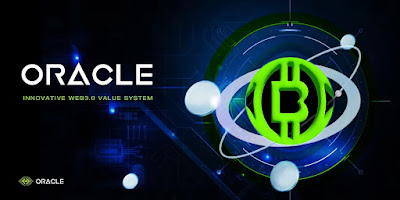Oracle: Let users reduce user risks and realize asset appreciation in the new DeFi ecosystem
We fully display user assets through contract analysis, intelligently recommend high-quality applications through data analysis, and realize convenient financial management, one-click mining and optimal transactions through aggregation of DeFi tools. In this way, users can fully understand the current data and conveniently operate and manage assets in the new DeFi ecosystem, reduce user risks, and realize asset appreciation.
Decentralized wallet for convenient operation and management of assets
The decentralized wallet Oracle is a multi-chain wallet that supports multiple platforms, integrating multiple functions such as wallets, data, financial management, mining, and transactions. After users use the Oracle wallet to easily create an Oracle chain account, they can receive, send, store and trade tokens such as DOT and KSM on their mobile phones with one click.
Oracle Wallet uses the oracle machine network to allow users to more easily and conveniently enter the wealth system using the Oracle oracle machine. Oracle Wallet is an asset management mechanism that allows users to manage acquired Oracle-related tokens and collect digital assets. This is a secure asset management system through which users can collect, spend and exchange earned ETH or other tokens. A transaction system handled through an internal OTC mechanism is planned to be implemented in a future phase, and the transaction will be operated by the Oracle Foundation to ensure smooth transactions between participants, project partners and service providers. HS Wallet is responsible for the management of assets in the ecology. In addition to pointing out other token assets, it also supports the maintenance of other public chain assets such as BTC, ETH, and TRON.
Based on the identity of the Oracle user, the Oracle wallet creates a corresponding other public chain identity address for each Oracle address, so as to realize the binding of the entire chain assets and the Oracle identity. For the transfer and contract execution of the whole chain assets, Oracle uniformly uses Oracle's private key as the certificate, and supports cross-chain smart contracts, which can complete the transfer of assets between different public chains in one contract execution. The whole chain transaction information can be checked on the chain. While satisfying personal asset management, Oracle deploys public wallets and cross-application centralized transfer functions. Through the public settlement system, asset transfers between different applications can be completed in milliseconds. We will be releasing an open source Oracle Wallet application for iOS, Android, PC and Mac.
Blockchain insurance brings asset appreciation
Oracle's decentralized cross-chain oracle protocol has diversified application scenarios, and focuses on blockchain insurance projects to create a Web3.0 investment system. Oracle's ecological scenarios are diversified, ranging from top-level high-quality global DeFi projects to decentralized exchanges, decentralized lending, decentralized wallets, NFT, financial derivatives, swap , DEX , NFTSwap , Gamefi , Socialfi and many other fields. It is involved, each ecological scene has a unique profit method and income model, and the income in each ecological scene forms a huge pool of funds. On the one hand, the Oracle fund pool creates a blockchain insurance project, on the other hand, it is mainly used for NFT pledges, and finally forms an Oracle oracle network wealth system, which brings high returns to users, and brings value-added assets and entertainment to users. The extraordinary experience integrating social and social features allows global users to experience the new oracle technology and share the top dividend of Web3.0.
Technology application scenarios such as DeFi tend to mature
Metaverse, NFT, DeFi, GameFi, public chain and other technologies and application scenarios are becoming more mature, objectively forming a global market for digital asset value exchange. With the advent of the Web3.0 era, driven by the distributed technology represented by the blockchain, from the decentralized point-to-point ledger experiment to the decentralized smart contract platform, countless new applications (DApps) have been born, and DeFi , GameFi has formed a "financial service" in the digital world, and NFT has accelerated the on-chain of assets. We see that outside the traditional world (online and offline), users are getting closer and closer to a digital world that blends and grows together. So far, people are calling for a brand-new online world—metaverse, which can credibly carry personal social identities and assets, and the community will have stronger dominance. Metaverse will create a closed-loop economic system. Any weak contribution related to data can be traced through blockchain technology. With the original digital currency as an incentive, the value transfer process of the entire digital world will be unimpeded, regardless of any time, place, and platform. monopoly restrictions.
epilogue
Traditional centralized exchanges not only require kyc real-name authentication, but also assets are at risk of being stolen on the exchange. The decentralized exchange overcomes these shortcomings, reduces user risks, and realizes asset appreciation . The blockchain insurance technology combined with the decentralized wallet fully optimizes the DeFi ecology and promotes user investment income.






Comments
Post a Comment